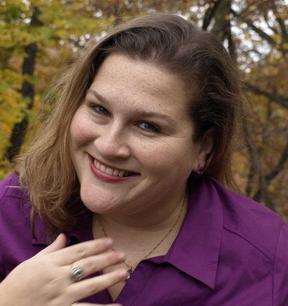|
Originally published on StartAgain Media
“The pursuit of excellence is gratifying and healthy. The pursuit of perfection is frustrating, neurotic, and a terrible waste of time.” –Edwin Bliss One of my high school teacher friends posted this inspirational quote on the wall of his classroom for many years. Had I read it when I was in high school, I would have scoffed, saying that the man who wrote it was a quitter and that if I wasn’t aiming for perfection, than who was I? As a seventeen year old, I walked across the stage of my high school graduation adorned in medals and honor chords, poised to give my speech as one of four valedictorians of my graduating class. I battled crippling depression and was well on my way to developing a drug and alcohol problem. In the thick of high school graduation season, I find myself in an interesting debate on social media about this very concept of awarding degrees of excellence versus awarding perfection in the form of a top rank. This year, a wealthy, high-achieving suburban school district in my area eliminated the traditional valedictorian/salutatorian system of award, converting to the cum laude system used at most American and Canadian universities. Thus, there are still degrees of merit, with summa cum laude being the highest honor, but no vying for a top prize. Iboa participated in one comment war and then started one of my own after reposting the article on the change to get a temperature for this decision. As expected, opinions were mixed, with some, very predictably, arguing that this conversion represents a dumbing down, equaling of the playing field, or an awarding of mediocrity that seems to be pervading society. I have to admit, as a valedictorian myself, my gut told me upon reading the article that this is the right way to go. I don’t see the awarding of a summa cum laude distinction representing mediocrity at all. When I look back at my own high school class, those of us who would have qualified for the summa cum laude distinction (generally viewed as a 3.75-3.8 or higher) were really all in the same boat in terms of intelligence and potential—it was trace differences that separated us. In fact, I would argue that the woman who ended up as salutatorian was the most intelligent of us all, and she certainly gave the most emotionally intelligent speech at commencement. Looking back as an adult at the seventeen-year-old perfectionist who walked across the stage, I regret many of the things I did and didn’t do to earn that valedictory distinction. I remember, upon entering high school, when I learned there was such a thing as being a valedictorian, I told myself that I would graduate with that distinction; after all, it was something that would make me special. I wasn’t a very popular girl, struggled with the boys, was overweight, had an awkward personality, wasn’t very good at sports (although I tried my best), but I was on the reasonably intelligent side. Thus, I worked my butt off to get straight A’s in all of the honors classes, struggling and wasting so much time trying to grasp concepts that were not fundamentally natural for me to understand. I’ve always had a proclivity towards English and the humanities, but I made myself take all of the top-level honors courses in math and science because that’s what was expected of me. One night, during my senior year, I remember going cross-eyed as I looked down at my calculus book, crying from the visual strain and the idea that I would be a failure at life if I couldn’t master calculus. I often deprived myself of the fun things that high schoolers should be doing in order to meet my perfectionist demands. Although I went to some dances, I skipped my senior prom, something I regret to this day. While I was in high school, a state Senate program in Ohio made it possible for high achieving high school students to take early college work, with the state footing the bill. Of course I was intrigued at the idea of taking some different classes, but a deterrent was that any B’s I got in college work would be counted against my high school GPA. Not wanting to lose the valedictorian race, and knowing that some of the other top contenders were not taking advantage of the opportunity, I actually convinced my mother to pay for these courses that I could have taken for free so I wouldn’t lose the race. As an economically conscious adult looking back at this decision, I roll my eyes and applaud my peers who took advantage of the free college work…they may have finished 12th or even 20th in terms of high school class rank, but clearly they were the more intelligent ones in terms of real-life decision making! In my high school years, it wasn’t just the race for valedictorian that kept me obsessed. Perfection permeated other areas of my life. I involved myself in so many academic competitions like speech and debate, Science Fairs, History Days. If I ever finished less than first, I took it as a slam against my personhood. I purchased a No Fear brand t-shirt and wore it for much of my junior year: Second Place is the First Loser emblazed the back of the shirt. At the time, I told myself that it was an in-your-face attack at my competition, but reflecting now, I can see that this statement projected my personal shame—I was that loser if I couldn’t win the top prize. Looking back at it now, nothing could be further from the truth. Some of the greatest gains I’ve made in my life have come when I finished second or third in competitions, or out of the race altogether. Take speech and debate, for instance: I was routinely a second or third place finisher and competitions and believed my life to be over when I didn’t advance to the finals at state competition my senior year. Yet over the years I came back to coach other high school students in speech and debate as a part-time job and made many of the best friendships in by life by doing so. Public speaking is such a vital component of my present work, and being able to do it competently is a reward that has lasted longer than any trophy from competitions. To be clear, I am not anti-competition; I get concerned when competition completely consumes an individual and actually blocks her success. In college and graduate school, when the pressure was off and I actually let myself get some B’s, I learned more. The first B that I earned in college was a very liberating experience for me, yet I’ve heard horror stories of other valedictorians and perfectionist types simply crumble upon the first sign of failure in college. Although I felt academically free after getting that first B, the message of “I have to be perfect” was already engrained in many other aspects of my life. The pressure may have been off academically, but that “No-Fear” message of “I am a loser” remained a core of my identity. Mix that with the free-flowing offering of alcohol and drugs made available to this previous sheltered over-achiever, and by time I graduated college, I did so summa cum laude and with an addiction. In my first attempt at graduate school, I flunked out. It took me moving overseas (Bosnia) to work a job in humanitarian aid in order for me to gain some sense of perspective about just how petty so many of my previous obsessions really were. While in Bosnia, I met my first recovery sponsor, an American social worker who mentored me both in recovery and in what became my eventual career (counseling/human services). Interestingly, one of the biggest mental traps she worked with me on during early sobriety was letting go of the need to be right, the burning need I had to always win. There is a classic passage in the AA Big Book encouraging us to resign from the debating society, and when she shared that with me, I knew exactly what it meant. When I free myself of that all-encompassing desire to win or be perfect, I open up more possibilities for my life and wellness. I am sure that many of you will read this and think I’ve just become a lovey-dovey liberal since competing and getting ahead is a part of American life. If you want to survive this shark tank of life, you must have a competitive edge. To that criticism I say this: Giving up perfectionism, fierce competitiveness, and the need to be right does not mean that I’ve given up my work ethic. In my recovery I’ve come to truly embrace the logic of the Edwin Bliss quote—pursuing excellence is gratifying and healthy. I still work hard and my most people’s standards I do very well in life. How refreshing that today I can live this excellence without hating myself. That reward is more precious to me than any medal, certificate, trophy or honor of ages past…
1 Comment
|
Dr. Jamie MarichCurator of the Dancing Mindfulness expressive arts blog: a celebration of mindfully-inspired, multi-modal creativity Archives
September 2022
Categories
All
|
Contact |
Memberships & Affiliations |
|
Please direct all inquiries to:
[email protected] © Mindful Ohio & The Institute for Creative Mindfulness, 2021 Terms of Use Privacy Policy |
Dancing Mindfulness/The Institute for Creative Mindfulness is an organizational member of the International Association of Expressive Arts Therapists, the Dance First Association, and NALGAP: The Association of Gay, Lesbian, Bisexual, Transgender, Addiction Professionals and Their Allies; Dancing Mindfulness proudly partners with The Breathe Network and Y12SR: The Yoga of 12-Step Recovery in our shared missions.
|


 RSS Feed
RSS Feed